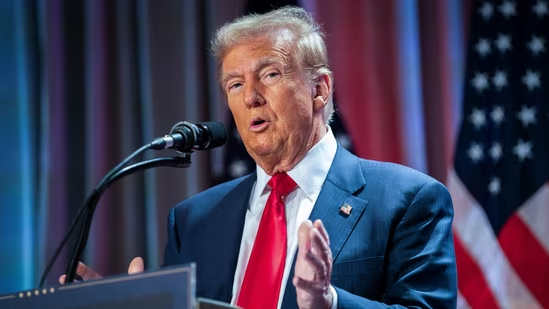President-elect Donald Trump has invited Chinese President Xi Jinping to his upcoming inauguration, marking the first time in modern history that a U.S. president-elect has extended such an invitation to a foreign head of state. While the move signals an effort to foster dialogue, it has sparked speculation about its diplomatic implications amid ongoing U.S.-China tensions.
Historic Invitation Breaks Tradition
President-elect Donald Trump’s decision to invite Chinese President Xi Jinping to his inauguration in January has drawn widespread attention for its unprecedented nature. Since 1874, no foreign head of state has attended a U.S. presidential inauguration, making this a groundbreaking diplomatic gesture. Karoline Leavitt, Trump’s incoming press secretary, confirmed the invitation during an interview with Fox News, emphasizing Trump’s commitment to maintaining open channels of communication with global leaders.
“This reflects President-elect Trump’s longstanding dedication to engaging with allies and competitors alike,” said Leavitt.
Diplomatic Context
The invitation comes amid ongoing tensions between the U.S. and China, particularly concerning trade disputes and tariff policies. Analysts interpret the move as an attempt to reset strained relations, though it poses potential challenges for Xi domestically. Accepting the invitation could be perceived as endorsing democratic practices, which contrasts with China’s autocratic governance model.
“Such a gesture is politically delicate for Xi Jinping,” noted Dr. Ellen Zhang, a China-U.S. relations expert at Georgetown University. “It could complicate his standing within China’s political circles while providing an opportunity to reshape bilateral relations.”
Reactions and Uncertainty
Although the invitation has been extended, it remains uncertain whether Xi will attend. Reports suggest that while Xi is unlikely to appear in person, high-ranking Chinese officials, including the country’s ambassador to the U.S., may represent Beijing at the ceremony.
Experts believe Xi’s decision will be closely scrutinized domestically and internationally. “This invitation is a bold move, but it puts both leaders in a delicate position,” said Richard Hall, a senior analyst at the Brookings Institution. “If Xi declines, it could signify resistance to diplomatic overtures. If he accepts, it may appear conciliatory at home.”
Significance and Implications
Trump’s decision to invite Xi is seen as part of a broader effort to redefine U.S.-China relations during his presidency. Observers note that the move aligns with Trump’s history of unconventional diplomacy, prioritizing direct engagement even with geopolitical rivals.
As Trump prepares for his second term, his approach underscores a willingness to challenge norms in pursuit of international dialogue. The outcome of Xi’s decision, whether to attend or decline, will likely set the tone for the next chapter of U.S.-China relations.
Background
The U.S.-China relationship has been fraught with economic disputes, military tensions, and ideological differences, making Trump’s invitation a notable overture. While Trump has often criticized China’s trade practices, his administration has also sought to establish a cooperative framework on critical global issues such as climate change and pandemic responses.
With inauguration ceremonies traditionally serving as a domestic affair, this invitation signals a potential shift in how the U.S. seeks to engage with the world’s other major powers. Whether it will foster closer ties or deepen divisions remains to be seen.


